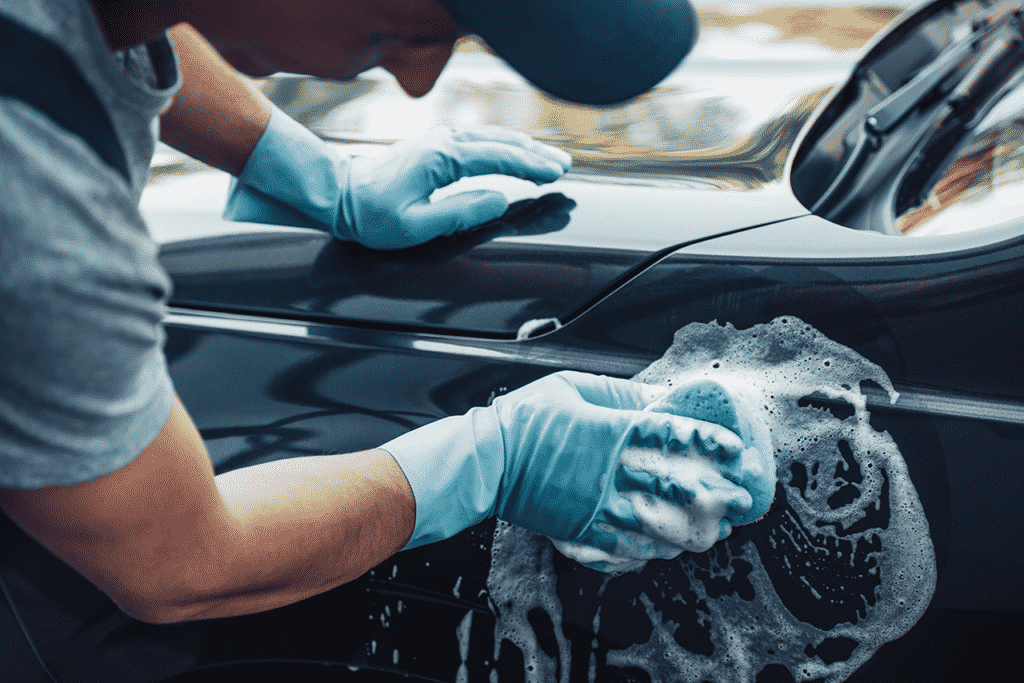A common misconception is that only cars that are put in extreme environments rust quickly. However, many everyday cars are prone to rusting from regular weather conditions such as rain and snow. To have a better understanding of which cars are prone to rusting, we’ll go over what causes rust and how to prevent it.
What Causes Rust Damage?
No car is immune to rusting, and there are cars and environments that are more prone to rusting than others. Understanding what causes rust will help you identify and stop the rusting process on your car before it’s too late.
Flooding and Water
Rust happens through a chemical reaction of iron, water and oxygen. When there’s flooding in or around your car, it becomes a prime environment for rust.
If your car is in a flooded area, you should try to take it out of that environment as quickly as possible, and if you cant access it yourself, you should consider enlisting the help of car professionals.
Flooding is an extreme case of water damage, but even rain and melting ice can impact your car. To protect from these environmental stressors, it’s best to keep your car out of the elements such as in a garage or other covered area.
Car Damage
Simple care damage can lead to rust when your car’s metal is exposed. This includes scratches or anything that causes the paint from your car to come off. Once you notice that a part of your car is exposed, it’s best practice to take it to a professional auto body mechanic to get it fixed as quickly as possible.
Preventing Rust Damage
Taking care of your car is important for preventing rust damage. It’s not as complicated as you might think, and basic care for your car will go a long way in ensuring that your car remains rust-free.
Regular Maintenance: Going for regular car maintenance checks will help identify any issues with your car and may identify early signs of rusting.
Wash Your Car: Your car goes through a lot, especially when you’re driving regularly in adverse weather. If you live in an area that is regularly salted, then most likely that salt will go on your car and start to corrode the materials. However, if you regularly wash your car, you can stop the corrosion process before it causes permanent damage.
Clean the Interior: Just like the outside of your car, your interior can rust if you do not regularly clean it. If salt from your shoes or the road enters your interior, it can begin to rust the materials in your car. Keep your car free of rust by keeping both the interior and exterior clean.
Cars Most Susceptible to Rust Damage
Most cars that are prone to rust damage are off-road vehicles, as they are the most likely to come into contact with various rust-inducing environments. That being said, everyday drivers are also known to rust just as easily.
Living near the ocean can also increase your chance of car rust, as the salt in the ocean air will cause rust. If you live in a snowy area, the use of salts to melt the ice that forms on the roads can also rust your cars.
Locations with less air moisture, such as desert environments, are less likely to induce rust, but there are no cars that are 100% immune to car rust.
Due to the materials they’re built from, certain cars are more susceptible to rust compared to others. Here are a list of cars that are more susceptible to rust:
- Ford Fiesta
- Vauxhall Corsa
- Land Rover Range Rover Sport
- Ford StreetKa
- Toyota Rav-4
- Jeep Wrangler
- Volkswagen Polo Hatch
- MINI Hatchback
Where to Take Your Car to Fix Rust Damage
If you’ve already identified rust damage on your car then don’t fret! It’s still fixable as long as you take it to a car mechanic. Professionals like the ones at Valley Collision are trained in bringing your car back to its optimal condition.

